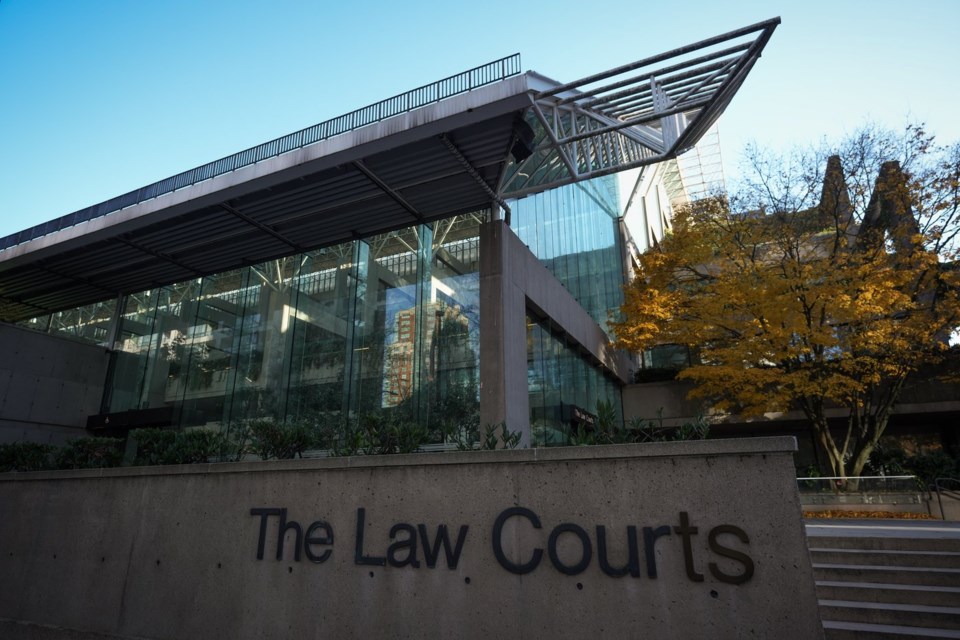VICTORIA — A Vancouver Island First Nation has won back fishing rights and title for part of the land its ancestors used as a summer home in the Lower Mainland, despite opposition by two other Indigenous communities.
A B.C. Supreme Court judge says in a written decision posted Friday that the Cowichan Tribes have established fishing rights on the Fraser River and title to a portion of almost 7 1/2 square kilometres of land they claimed on Lulu Island in Richmond, B.C.
The Musqueam and Tsawwassen First Nations, along with the federal and provincial governments, the City of Richmond and the Vancouver-Fraser Port Authority all opposed the claim during the 513-day trial.
Justice Barbara Young ruled that land titles grants issued by the Canadian and B.C. governments to others "are defective and invalid" as they "unjustifiably infringe the Cowichan Nation Aboriginal title to these lands."
The decision says both governments owe a duty to negotiate with the nation "in good faith" on how to reconcile its land title with what's now in the territory, including the Vancouver Airport Fuel Delivery Project property.
B.C. Premier David Eby says in a response that the province is reviewing the decision for a possible appeal and will also seek to resolve the issue by negotiating with all nations involved.
“But let me be clear: owning private property with clear title is key to borrowing for a mortgage, economic certainty, and the real estate market," Eby says.
“We remain committed to protecting and upholding this foundation of business and personal predictability, and our provincial economy, for Indigenous and non-Indigenous people alike.”
The area where the Cowichan have established title was used by the nation's ancestors during the summer as a "permanent post and beam village" but was never established as a reserve, resulting in B.C. giving away the land starting in 1871.
The Musqueam Indian Band — which declared in 1976 that it holds the Aboriginal title covering both the north and south arms of the Fraser River — says in a statement that it is deeply disappointed and "fundamentally" disagrees with the court decision.
It says that it has established "national legal precedent on Aboriginal title and fishing rights" through two major cases in the Supreme Court of Canada, and it plans to "continue to vigorously defend these rights."
"Musqueam is shocked the court didn’t give effect to oral history and traditional governance protocols, which guide intercommunity relationships since time immemorial," the statement says.
Musqueam Chief Wayne Sparrow said in an interview that the land in question is in the heart of the nation's territory and double the size of the Musqueam reserve.
"We're disappointed, but not surprised. We've been down this path many times before," he said.
"We've had decisions that the lower courts go against us, and we brought them to the higher courts and were successful there. And those are the options that we're going to be looking at in the next week or so."
All parties have 30 days to decide if they will appeal.
The Vancouver Fraser Port Authority says in a statement that it is reviewing the implications and details of the decision alongside other affected federal government departments, and further updates will be provided at an appropriate time.
The Cowichan Tribes says in a news release that it is "celebrating a historic victory," while honouring "generations of leaders" in the community who fought to win the Aboriginal title on the Fraser River land.
"It is in their honour and for the well-being of our future generations that the elders, knowledge holders, and chiefs who have gone before us brought this case forward to recognize our Aboriginal title and fishing rights, as a basis for truth and reconciliation, through the courts," it says.
Young says in the decision that while evidence shows a number of Coast Salish groups being historically located in the lower Fraser River region, some places, such as the area of the Cowichan claim, "belonged to specific groups."
The judge says the Cowichan "had the capacity and intention to exclusively control their village land and some surrounding areas on the south arm of the Fraser River" before 1846, when the British Crown asserted sovereignty in the area.
"This was the Cowichan village," the ruling says. "It belonged to the Cowichan, and other groups respected that it was on Cowichan land.
"The Cowichan exercised effective control over their land. There is no evidence of other Indigenous groups occupying this village."
The court recognizes that the case "raised complex … and novel issues," its decision says.
"The fact is, all the parties have continued interests, rights and obligations around the south arm of the Fraser River and limited resources need to be shared and preserved," Young says in the decision.
"Now that this multi‑year journey has concluded, it is my sincere hope that the parties have the answers they need to return to negotiations and reconcile the outstanding issues."
This report by The Canadian Press was first published Aug. 8, 2025.
The Canadian Press




